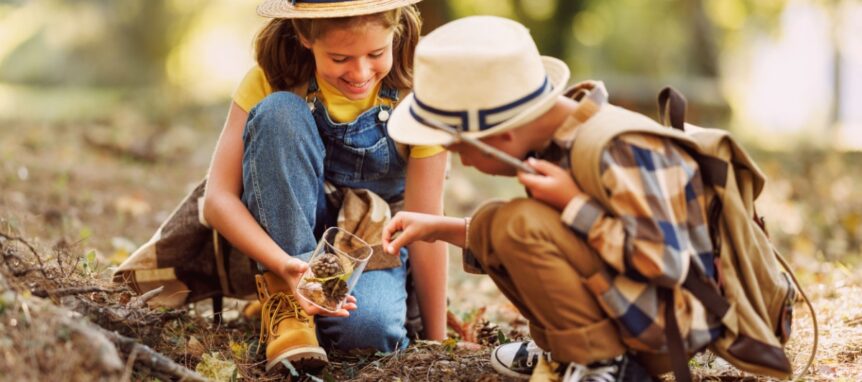Confidence is one of the most powerful traits a child can develop—and one of the most essential for their long-term success. While traditional classroom settings often focus on grades and performance, nature-based activities offer children a different kind of learning environment, one that builds confidence through hands-on experiences, physical challenges, and emotional growth.
When kids engage in outdoor exploration and adventure, they develop not only skills but also a stronger sense of self. The unpredictability of nature, the diversity of camp experiences, and the absence of rigid academic pressure all combine to create a setting where kids can discover what they’re capable of—on their own terms.
The Power of Unstructured Outdoor Play
One of the key benefits of nature-based activities is the freedom they offer. Unlike structured classroom lessons, outdoor play allows children to explore, make choices, and take initiative. Whether building a fort, navigating a trail, or examining insects in the dirt, kids are invited to lead their own learning. This type of self-direction encourages curiosity and helps children trust their instincts.
With each decision made outdoors, children start to see themselves as capable and competent. They may not realize it at the time, but learning how to assess a wobbly branch before climbing or figuring out the best way to paddle a canoe are forms of real-world problem-solving. These accomplishments, though small, stack up and become the foundation of lasting confidence.
Taking Safe Risks and Overcoming Challenges
Nature provides the ideal backdrop for healthy risk-taking. Unlike virtual environments or tightly controlled classrooms, outdoor spaces invite kids to test their limits—physically, socially, and emotionally. Climbing a rock wall, zip-lining, or even spending a night away from home at an overnight camp might push a child outside their comfort zone, but doing so in a supportive environment helps build resilience.
As children encounter and overcome these challenges, they begin to believe in themselves. They realize they can do hard things, even when they feel uncertain at first. The result is not just a boost in self-esteem, but also a greater willingness to face new challenges in other areas of life, including school and friendships.
Real Achievement, Not Just Praise
In many traditional settings, confidence is often tied to external validation—test scores, teacher praise, or parent approval. But in nature, confidence stems from internal achievement. A child who spends 30 minutes building a shelter out of sticks or starting a campfire with help from a counselor isn’t just learning a new skill—they’re experiencing the pride that comes with accomplishing something through effort and persistence.
These experiences teach kids that success isn’t always immediate or easy—and that’s okay. They learn to be patient with themselves, to try again, and to value the process as much as the outcome. That mindset carries over into every area of life, helping children build true self-worth that doesn’t rely on someone else’s opinion.
Social Confidence Through Connection
Nature-based activities often take place in group settings like camp, where children are surrounded by peers and mentors. Working as a team to navigate a hiking trail, complete an obstacle course, or create a skit for campfire night fosters social interaction and collaboration.
These shared experiences naturally strengthen communication skills and empathy. Shy children find their voice in small group discussions or camp games. Outgoing children learn to listen and lead with kindness. By engaging in meaningful social activities without screens or school-related pressures, kids learn how to be themselves—and gain confidence in how they interact with others.
Building Lifelong Confidence
The lessons learned through nature-based activities don’t fade once camp is over or the trail ends. Kids who grow confident in the outdoors often carry that confidence into school presentations, friendships, new hobbies, and family dynamics. They’re more likely to try new things, solve problems independently, and believe in their ability to shape their own lives.
At Camp Live Oak, these principles are at the heart of every program. Whether children are participating in outdoor science experiments, learning survival skills, kayaking along the shoreline, or simply exploring the natural world, they’re doing more than just having fun—they’re growing into confident, capable young people.
If you’re looking for ways to help your child thrive beyond the classroom, connect with Camp Live Oak to learn how nature-based activities can unlock their full potential—mentally, socially, and emotionally.

